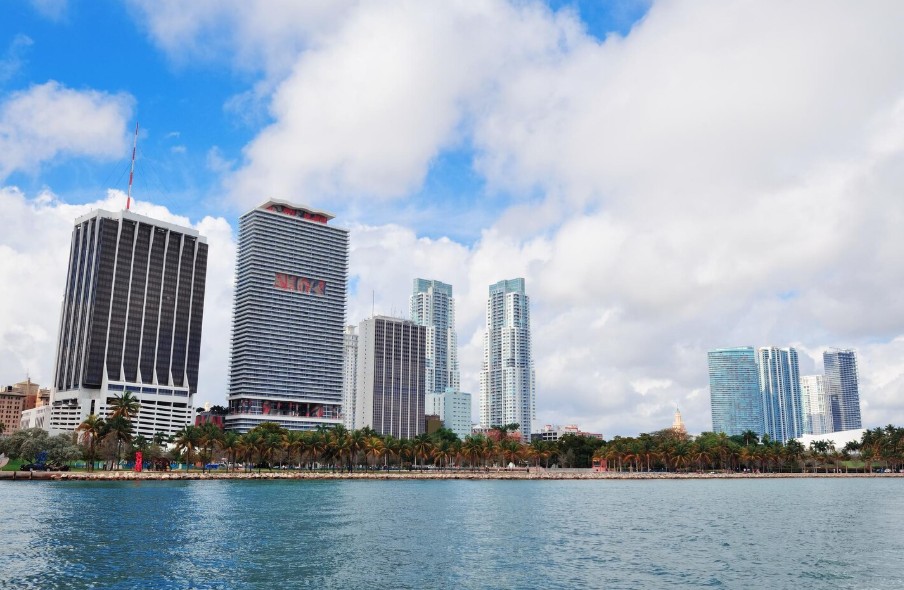Introduction: Why Paid Up Capital Matters for Foreign Investors
For foreign investors in Malaysia planning to set up a company in Malaysia, understanding paid up capital requirements is one of the most critical first steps. Paid up capital — sometimes referred to as share capital in Malaysia — is the actual amount of money shareholders inject into the company’s corporate bank account during incorporation.
It’s more than just a compliance figure. Paid up capital directly affects:
- ✅ Company incorporation Malaysia and approval by the Companies Commission of Malaysia (SSM Malaysia)
- ✅ Eligibility for Employment Passes and expatriate visas
- ✅ Corporate bank account approvals with Malaysian banks
- ✅ Licensing and regulatory approvals, which vary by industry (retail, manufacturing, education, etc.)
- ✅ Business credibility with regulators, investors, and suppliers
👉 For foreign entrepreneurs, the amount of paid up capital can determine how quickly your business is approved, licensed, and able to hire expatriates.
📞 Need expert help with your Malaysia company incorporation? Contact Amaze Advisory at salesteam@amazeadvisory.com or call +6013-284 7678 / +6013-323 7678 for a free consultation.
What is Paid Up Capital?
In simple terms, paid up capital Malaysia is the actual cash invested into the company by shareholders. Unlike authorised capital, which sets only a ceiling, paid up capital reflects real money deposited into the company’s corporate bank account.
Key points for foreign investors:
- There is no fixed minimum under the Companies Act 2016 — you can technically incorporate with as little as RM1.
- Sector-specific thresholds apply — retail, education, and tourism businesses usually require higher capital.
- Banking convenience — most banks prefer to see at least RM10,000 injected before approving a corporate account.
💡 Pro Tip: Injecting more than the bare minimum increases credibility with banks and licensing authorities, and often speeds up approval processes.
Why Paid Up Capital is Important for Foreign Investors
For foreigners planning to set up company in Malaysia, paid up capital has far-reaching consequences:
- Work Visa & Employment Pass Eligibility – Immigration requires certain capital levels before expatriates can be hired.
- Regulatory Approvals – Specific industries (e.g., wholesale trade, tourism) impose thresholds before licences are issued.
- Business Credibility – Banks, suppliers, and authorities view higher capital as proof of financial strength.
- Operational Flexibility – Adequate capital ensures smoother operations in the early stages.
💡 Pro Tip: Plan your capital injection Malaysia carefully during incorporation to avoid costly visa or licence rejections later.
Paid Up Capital Requirements by Sector in Malaysia
| Business Activity | Minimum Capital Required | Notes |
| General Business (100% foreign-owned) | RM 500,000 | Standard entry requirement |
| Wholesale & Retail Trade (WRT License) | RM 1,000,000 | Mandatory for 100% foreign-owned companies |
| Consultancy Services | RM 1,000,000 | Often treated like WRT |
| Education / Training Institutions | RM 500,000 – RM 1,000,000 | Depends on licensing authority |
| Tourism (Travel Agency) | RM 50,000 – RM 1,500,000 | Based on license type |
| Employment Agency | RM 50,000 – RM 250,000 | License-specific |
⚠️ Note: If you intend to hire expatriates under the Employment Pass Malaysia, immigration may require higher capital than the listed minimums.
Paid Up Capital and the Employment Pass
One of the most overlooked links for foreign investors is between paid up capital and Employment Pass approval.
- Companies with higher declared capital are viewed as more stable and are more likely to secure EP approvals.
- Multiple EP applications often require capital above RM1,000,000.
- Low paid up capital is a common reason for visa rejection.
💡 Pro Tip for Foreign Professionals: Injecting a higher capital amount upfront can significantly increase your visa approval rate.
🔑 How to Increase Paid Up Capital in Malaysia
Many companies find that their initial capital injection is not enough to meet banking, licensing, or immigration requirements. In such cases, companies must increase their paid up capital after incorporation.
Here’s a step-by-step guide on the different methods, processes, and considerations.
1. Issuance of New Shares
- Process:
- Board of Directors passes a resolution approving the allotment of new shares.
- Shareholders approve the issuance.
- Funds are deposited into the company’s corporate bank account.
- Filing of Return of Allotment of Shares (Section 78) with SSM.
- When it’s used: When the company needs more funds and shareholders are willing to inject fresh money.
- Risks: If one shareholder cannot afford to subscribe, ownership dilution occurs.
💡 Best Practice: Use shareholder agreements to protect minority interests during fresh allotments.
2. Capitalisation of Reserves
- Process: Retained earnings are converted into share capital, usually by issuing bonus shares.
- When it’s used: For companies with accumulated profits but not enough cash reserves.
- Risks: Does not bring in new cash, only reclassifies accounting balances.
💡 Best Practice: Suitable for improving the “balance sheet strength” before investor due diligence.
3. Conversion of Debt to Equity
- Process: Loans provided by shareholders or related companies are converted into equity.
- When it’s used: Companies with outstanding shareholder loans want to strengthen their capital structure.
- Risks: May change shareholder voting rights significantly.
💡 Best Practice: Ensure proper agreements and filing with SSM to avoid tax complications.
4. Rights Issue
- Process: Existing shareholders are given the right to purchase additional shares in proportion to their holdings.
- When it’s used: To raise capital while maintaining current ownership ratios.
- Risks: If some shareholders decline, others may increase their holdings disproportionately.
5. Private Placement
- Process: Shares are issued directly to new investors or strategic partners.
- When it’s used: To bring in external investors, business partners, or venture capital.
- Risks: Shareholding dilution and potential conflicts with existing owners.
💡 Best Practice: Ensure shareholder approval thresholds under the Companies Act 2016 are met.
6. Employee Share Option Scheme (ESOS)
- Process: Employees are given the option to purchase shares at a fixed price, often linked to performance.
- When it’s used: To attract and retain talent.
- Risks: Complex administration; may not be suitable for early-stage foreign subsidiaries.
7. Calls on Partly Paid Shares
- Process: If shareholders originally subscribed to shares but only partly paid, the company may “call” for the unpaid balance.
- When it’s used: Rare in Malaysia but can be useful in staged funding plans.
Timeline for Increasing Paid Up Capital
- Preparation & board resolution: 1–2 days
- Bank fund injection & clearance: 1-2 days
- SSM filing and approval: 1-2 days
⏱️ Total: 2–6 days depending on complexity.
Challenges in Increasing Paid Up Capital
- Delays in opening/clearing bank accounts for foreign transfers.
- Shareholder disagreements on proportion of funding.
- Non-compliance with SSM filings leading to penalties.
💡 Pro Tip: Always align capital increase with tax planning, immigration requirements, and future licensing needs to avoid multiple injections.
Capital Reduction in Malaysia: Process & Requirements
Just as companies may need to increase capital, they may also seek to reduce paid up capital for restructuring, returning excess funds, or aligning with business strategy.
Methods of Capital Reduction
- Court Approval Route – Application to court for an order confirming reduction.
- Solvency Statement Route – Directors declare solvency; faster, no court order needed.
Requirements
- Shareholder approval via special resolution.
- Statutory filings with SSM.
- Solvency declaration by directors (if not using court approval).
Risks of Capital Reduction
- Dropping below licensing thresholds (e.g., WRT licence minimum RM1,000,000).
- Visa cancellations if immigration deems the company undercapitalised.
- Shareholder disputes if ownership ratios are mishandled.
📌 Case Studies
- Paid Up Capital Too Low for Visa Approval – A Japanese F&B company incorporated with insufficient capital. Immigration rejected its EP applications. Amaze Advisory assessed the situation and provided the recommendations and executed the increased capital to the required threshold, and EPs were approved and business was able to operate.
- Banking Delays from Insufficient Capital – A foreign fintech start-up with RM500 capital faced months-long delays opening a bank account. After raising capital to RM20,000 under Amaze Advisory’s guidance, approval was granted in two weeks.
- Improper Capital Reduction Causing Licence Cancellation – A retail company reduced capital below RM1,000,000 while holding a WRT licence. Authorities revoked its licence. Amaze Advisory assist client to reinstate its share capital, regaining approval.
❓ Frequently Asked Questions (FAQ)
Paid Up Capital in Malaysia
Q1. How much capital is needed to incorporate a company in Malaysia?
Technically, under the Companies Act 2016, a company can be incorporated with as little as RM1 in paid up capital. However, this is usually only applicable for small, locally owned businesses. For foreign-owned companies, the practical requirement is much higher.
- General foreign-owned businesses are usually expected to inject at least RM500,000 in paid up capital.
- For companies applying for a Wholesale & Retail Trade (WRT) licence or consultancy services, the minimum is typically RM1,000,000.
- For certain regulated sectors such as education, tourism, or employment agencies, the threshold varies depending on the authority.
💡 In short, while incorporation can technically start from RM1, foreign investors should budget between RM500,000 and RM1,000,000 for smooth licensing, immigration, and banking approvals.
Q2. Does paid up capital affect Employment Pass approval?
Yes, absolutely. Immigration authorities treat paid up capital as proof of financial strength and long-term commitment. When assessing Employment Pass (EP) applications, they consider whether the company has enough financial resources to sustain expatriate salaries.
- Companies with higher capital injections are seen as more stable, which significantly increases the success rate of EP applications.
- For companies applying for multiple expatriates, the capital requirement may exceed RM1,000,000.
- Insufficient capital is one of the most common reasons for EP rejections.
💡 For foreign professionals intending to bring in expatriate staff, declaring sufficient capital upfront can save months of delays and rejection risks.
Q3. Can foreign investors inject capital in foreign currency?
No, all paid up capital in Malaysia must be denominated in Malaysian Ringgit (RM). This ensures uniformity and regulatory compliance with the Companies Commission of Malaysia (SSM).
Foreign investors can transfer funds in foreign currency (e.g., USD, EUR, SGD) into the corporate bank account, but the bank will convert it into RM before it is recorded as paid up capital. The company secretary will then lodge the return of allotment reflecting the capital in RM.
💡 Always coordinate with your company secretary and bank to ensure the capital injection is documented correctly. Mistakes in currency conversion or recording may result in SSM rejections.
Q4. What happens if my paid up capital is too low?
Having too little paid up capital can create multiple barriers for foreign-owned businesses:
- Visa Rejections – Immigration may reject Employment Pass applications if the company does not meet the minimum capital threshold.
- Banking Delays – Many banks refuse to open a corporate account for companies with extremely low capital (e.g., RM1 to RM5,000).
- Reduced Credibility – Business partners, suppliers, and investors often view low capitalisation as a sign of instability.
- Licence Refusals – Sector-specific licences, such as WRT or education licences, may not be issued if capital is below the regulatory threshold.
💡 In practice, low paid up capital often leads to operational delays, reputational risks, and missed business opportunities.
Capital Reduction in Malaysia
Q5. Can I reduce paid up capital after incorporation?
Yes, companies can reduce their paid up capital, but they must follow strict legal procedures under the Companies Act 2016. The process can be carried out through either:
- The court order route, which provides strong protection for creditors but is more costly and time-consuming.
- The solvency statement route, where directors declare that the company will remain solvent for 12 months after reduction, followed by shareholder approval via special resolution.
💡 The reduction must be properly lodged with SSM to take legal effect. Improper shortcuts can result in penalties and invalid filings.
Q6. What is the minimum level of capital after reduction?
In theory, a company can reduce its paid up capital to as little as RM1. However, this only applies to purely local entities with no licensing or immigration obligations.
For foreign-owned businesses, the practical minimum depends on:
- Sectoral thresholds (e.g., RM1,000,000 for WRT licence holders, RM500,000 for general trading).
- Immigration requirements for expatriate hiring.
💡 Reducing capital below these levels could cause immediate regulatory issues, including visa cancellations or licence revocations.
Q7. What are the risks of capital reduction?
If not done properly, capital reduction can expose a company to serious risks, such as:
- Licence revocation if the reduced capital falls below sector-specific requirements.
- Visa rejection or cancellation if immigration deems the company under-capitalised.
- Shareholder disputes if reductions are done without proper approvals.
- SSM penalties for incomplete or inaccurate filings.
💡 A poorly executed capital reduction can be more damaging than over-capitalisation, so professional guidance is essential.
Q8. How long does the process take?
The timeline for a capital reduction in Malaysia is usually between 1 to 6 months, depending on the method used:
- Solvency statement route: Generally faster (around 1 months), provided directors are confident the company is solvent.
- Court order route: Typically 4–6 months or longer, due to the need for hearings and judicial review.
💡 The timeline also depends on whether creditors or shareholders raise objections, which may extend the process further.
Q9. Why should I engage professionals when reducing capital?
Capital reduction is a technical and sensitive process that requires legal, regulatory, and strategic alignment. Professionals ensure that:
- The process complies fully with the Companies Act 2016.
- Sector-specific thresholds are not breached.
- Shareholders and creditors are properly notified and protected.
- Documentation and filings with SSM are accurate and timely.
- Business continuity is preserved, avoiding disruptions to licences, visas, and banking.
💡 With Amaze Advisory, you receive end-to-end support for both capital increases and reductions, ensuring compliance and smooth execution.
How Amaze Advisory Helps Foreign Investors
At Amaze Advisory, we provide a one-stop solution for foreign investors:
- ✅ Company incorporation Malaysia with SSM compliance
- ✅ Paid up capital structuring & corporate bank account setup
- ✅ Licensed company secretary & nominee director services
- ✅ Employment Pass & expatriate visa support
- ✅ Strategic tax compliance Malaysia and advisory
- ✅ Capital increase & reduction filings with SSM
Understanding paid up capital requirements and the capital reduction process is vital for foreign investors in Malaysia. The right capital level influences your:
- Licensing approvals
- Immigration success rates
- Banking relationships
- Investor and regulator confidence
By planning ahead and working with trusted professionals like Amaze Advisory, you can ensure compliance, faster approvals, and a stronger foundation for your business.
🚀 Take the first step today with Amaze Advisory — your trusted partner for company incorporation, licensing, and ongoing compliance in Malaysia.
Email salesteam@amazeadvisory.com or call +6013-284 7678 / +6013-323 7678.
Contact Amaze Advisory today and take the first step toward building your business in Malaysia.



